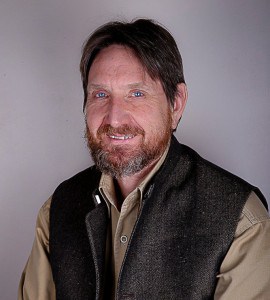The Secret Behind Human Success

Etsko Schuitema is the lead partner of the Schuitema Human Excellence Group
The Etsko Schuitema model of Intent shows how each person operates on a continuum that is bounded by two unconditional moments: unconditionally here to get and unconditionally here to give.
As we engage with the world, we are constantly faced with a choice to act on the basis of our needs (what I want to get) or on our values (what I ought to give).
This can often be thought of as doing what is expedient vs. what is right.
Etsko Schuitema says, “While our intent is not visible, our behaviour is, and those around us consistently watch us to try determine our intent.”
When we operate on the basis of what we want to get, we are acting in a fundamentally immature, or malevolent, way.
Our expediency causes others to perceive us as subjective, closed-minded, impatient and only concerned with self-interest.
When we operate on the basis of doing what is right, we are acting in a way that others perceive as mature, or benevolent.
They see us as objective, open-minded, patient and concerned with the interest of others.
It is critical to note that acting on the basis of what I should give does not mean being nice.
There are times when we are required to be generous and others when we are required to be courageous.
Generosity may require us to be hard, while courage may require us to be soft.
“Being ‘here to give’, therefore, means being appropriate in each and every situation. This is known as being ‘transactionally correct’,” Etsko Schuitema.
We have very limited ability to gauge where we sit on this continuum of ‘get’ vs. ‘give’, as our subconscious needs often conflict with our conscious desire to do what is right.
We are very good at fooling ourselves and in a sense have blind-spots in our lives.
Very seldom do people come to work with the intention of leaving a path of mayhem and unhappiness behind them, but as they leave the office at the end of the day, they clearly have had a negative impact on those around them.
In the same way, very seldom do people see the full impact of their positive actions and the ripples of joy that spread out from each of their engagements with others.
The consequences of our actions spread far faster and wider than we would often care to admit.
The way that we act invites others to act in the same way in response to us.
In a sense, we experience what we are.
At the heart of transactional correctness is personal humility.
We are able to put aside our own agenda and see things as they are, to realise how blessed we are and how benevolent the universe is. This causes an emotion of gratitude within us that propels us to act with generosity toward others.
Gratitude is backward looking, which enables us to trust that we will continue to be blessed.
When we trust in a benevolent world we have the courage to submit ourselves to the situation at hand and reflect power. We are in awe of the other and see each situation and every person as significant.

At the heart of opposite side of the model is pride and independence.
We may feel that this universe is trying to do us harm, or that we know better.
This causes us to act on the basis of our own agenda, which usually consists of preconceived ideas and prejudices.
We become resentful of others because we don’t get what we want and act selfishly toward them.
We are distrustful of a malevolent world and act in a cowardly manner as we rebel against the situation at hand in order to control the outcome.
We live in fear of the vastness of the other and our own insignificance.
Let Etsko Schuitema speak at your next event.
Find out more about mindfulness.
“Etsko Schuitema has influenced a big part of my life and has sparked my inner journey with the help of prayer, meditation and journalling,” Jacques de Villiers.
